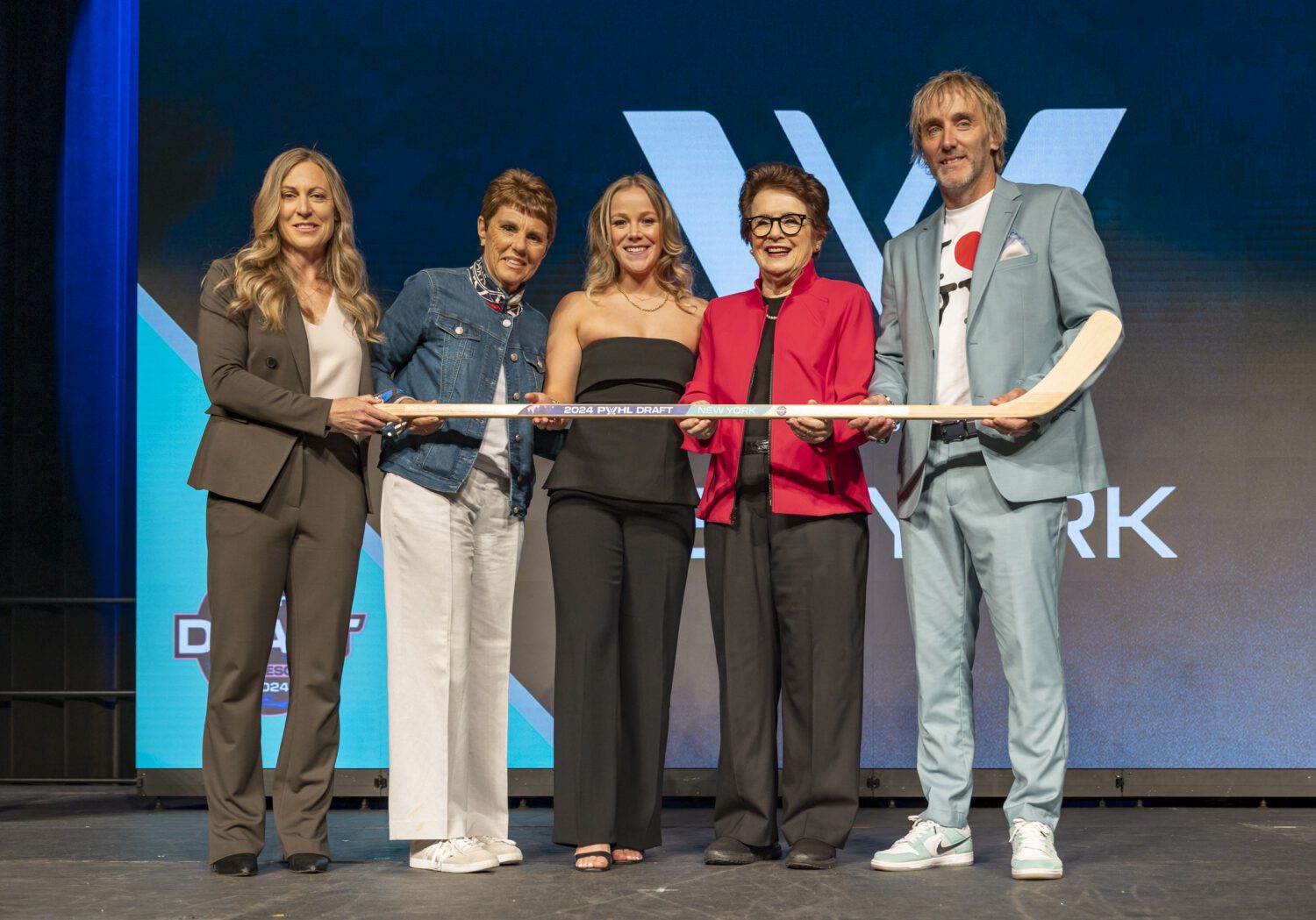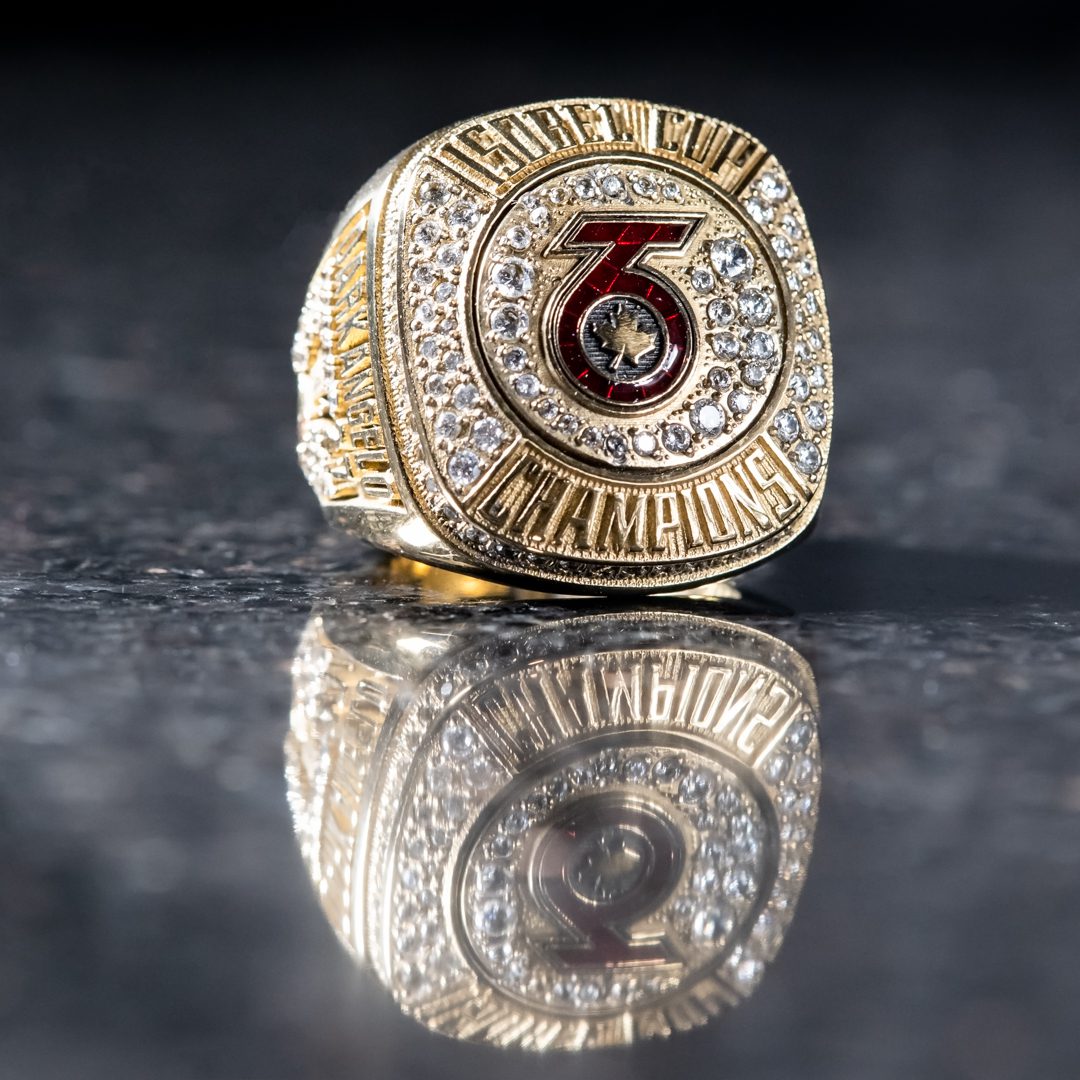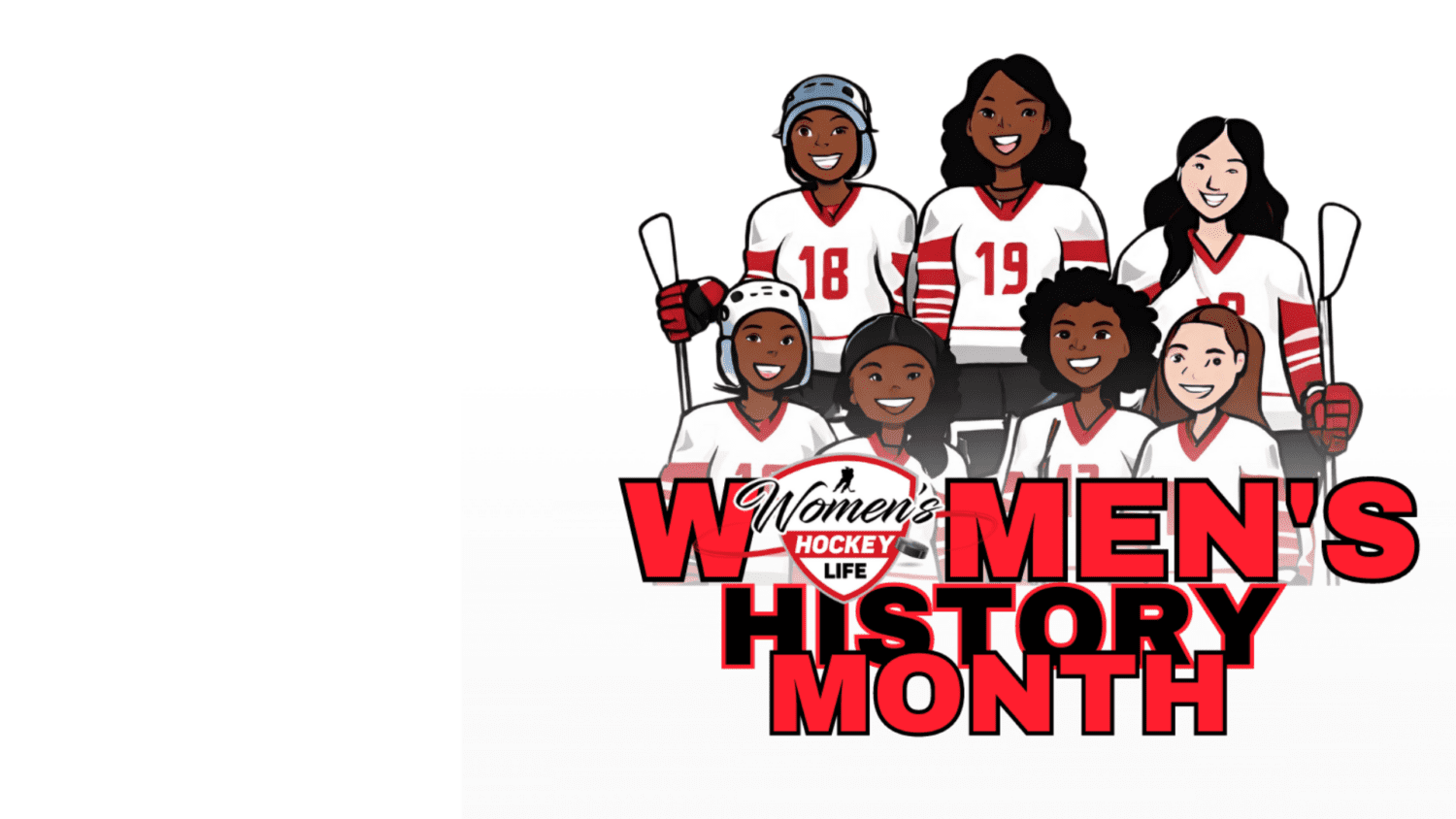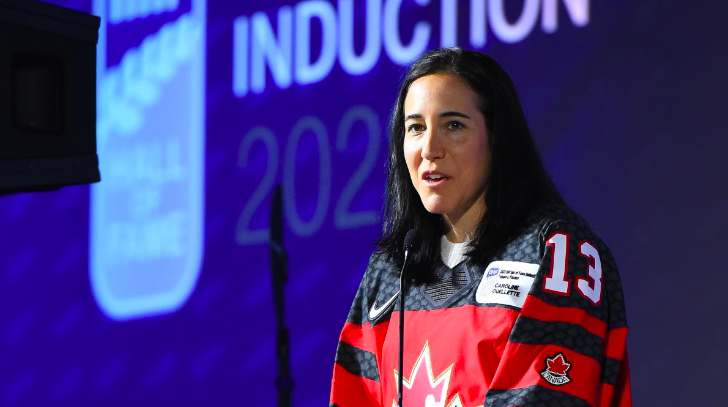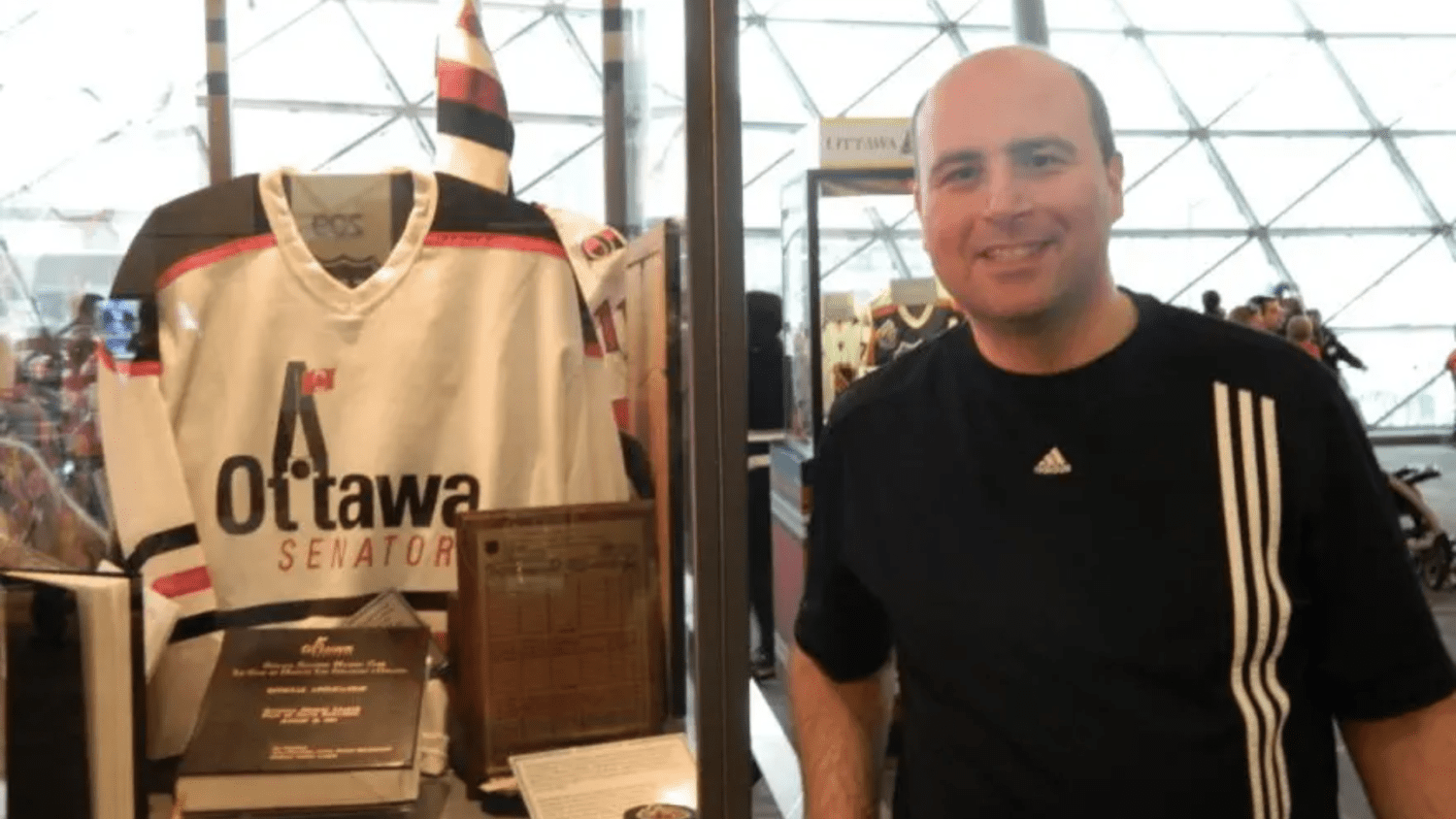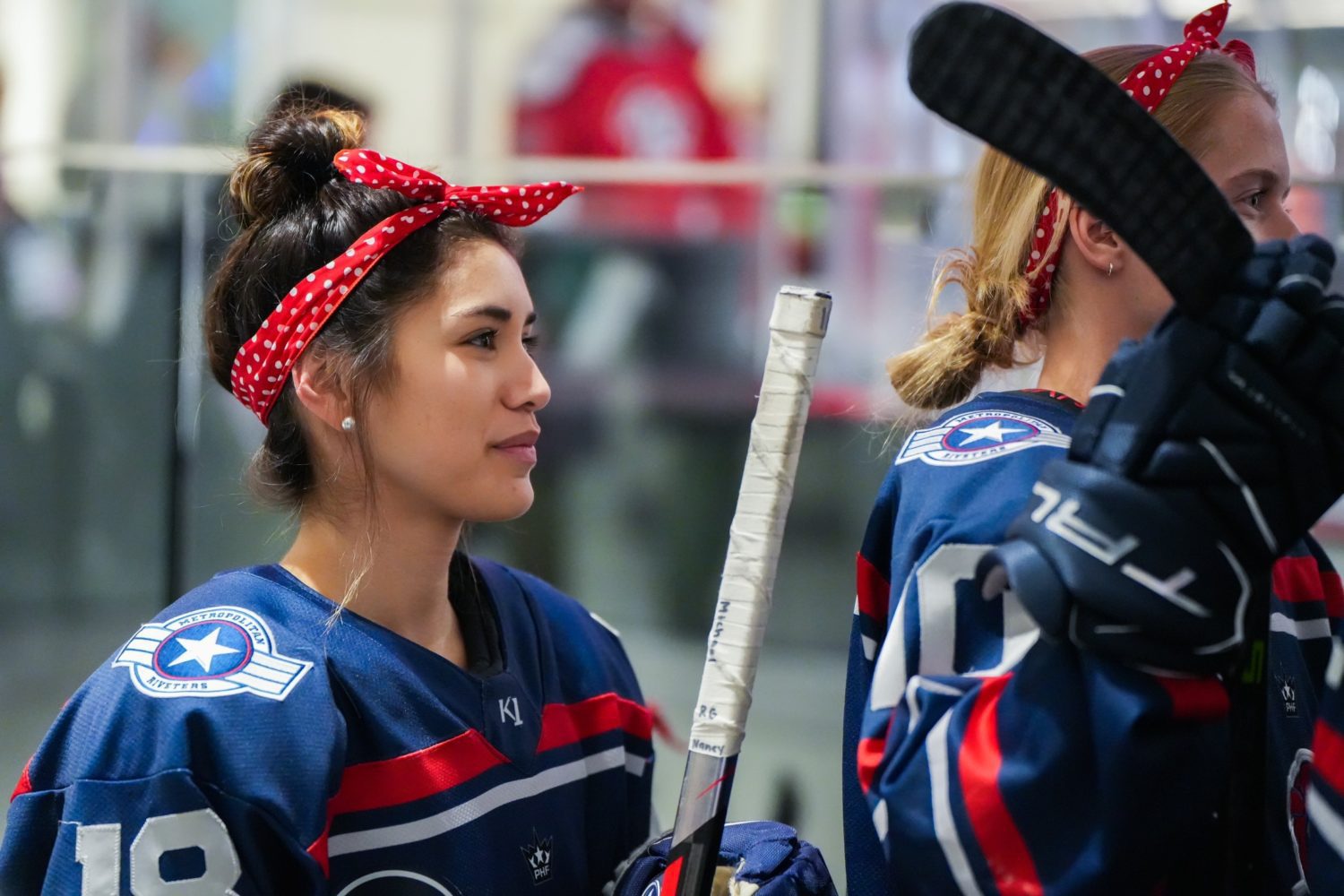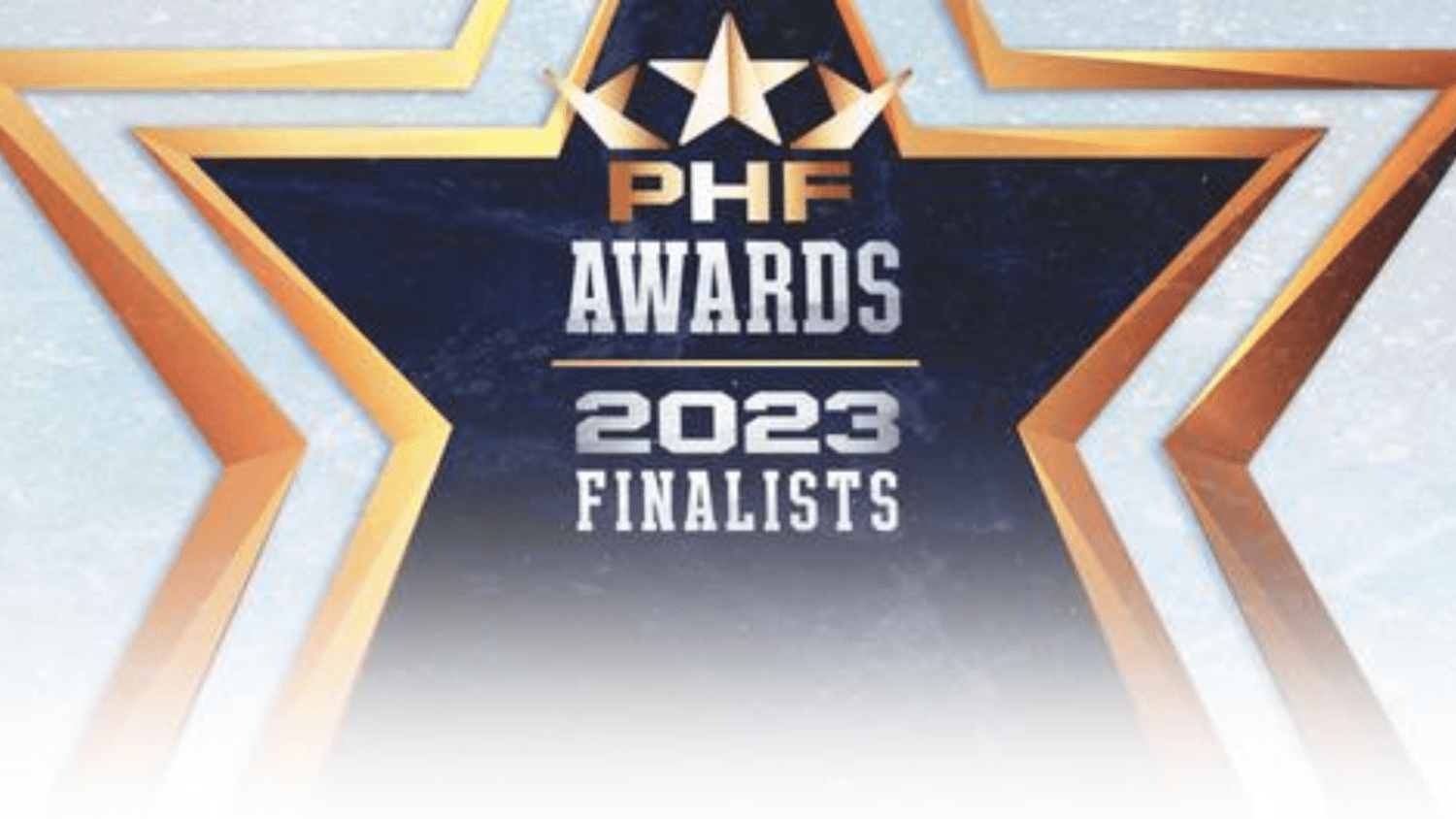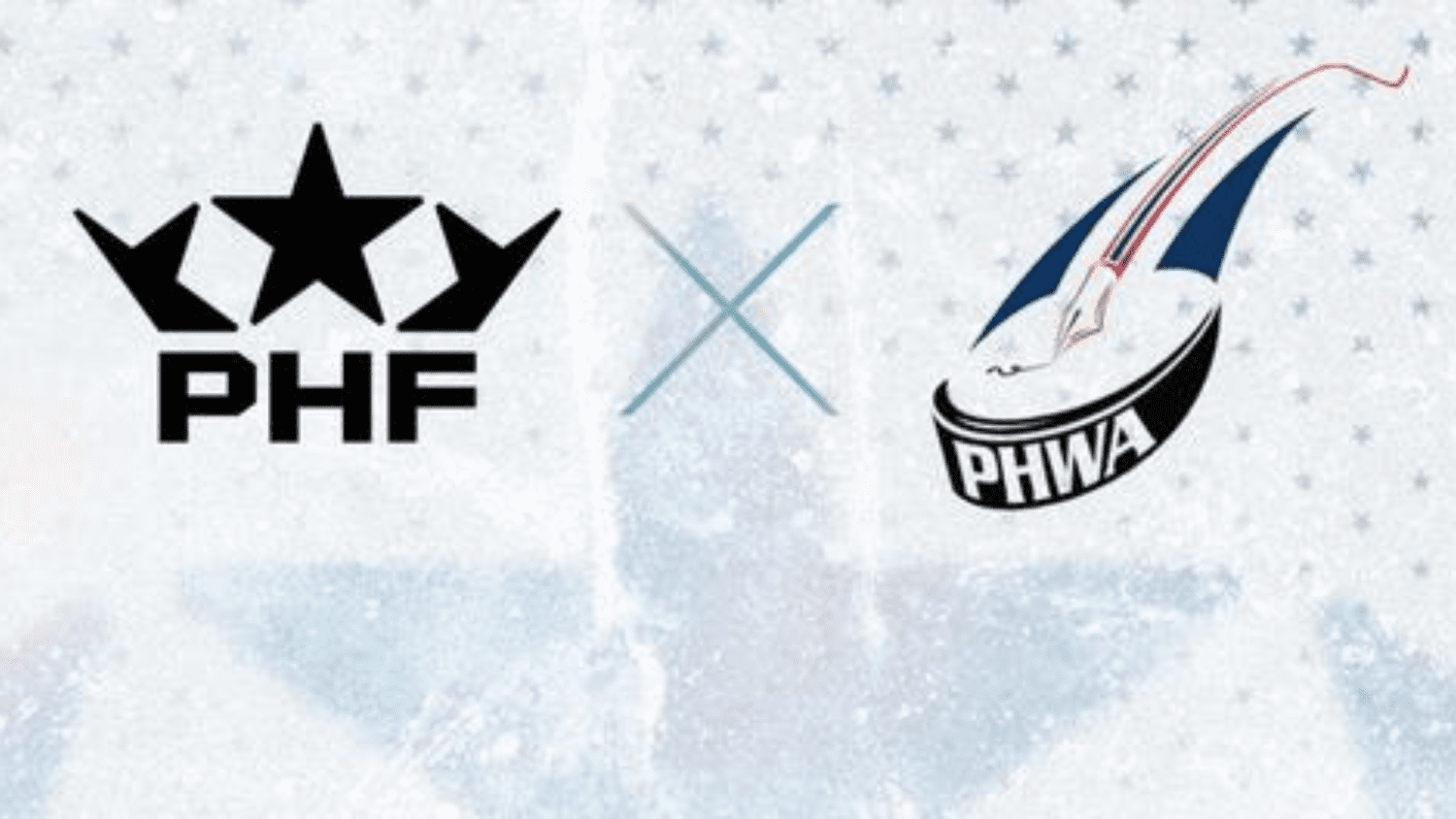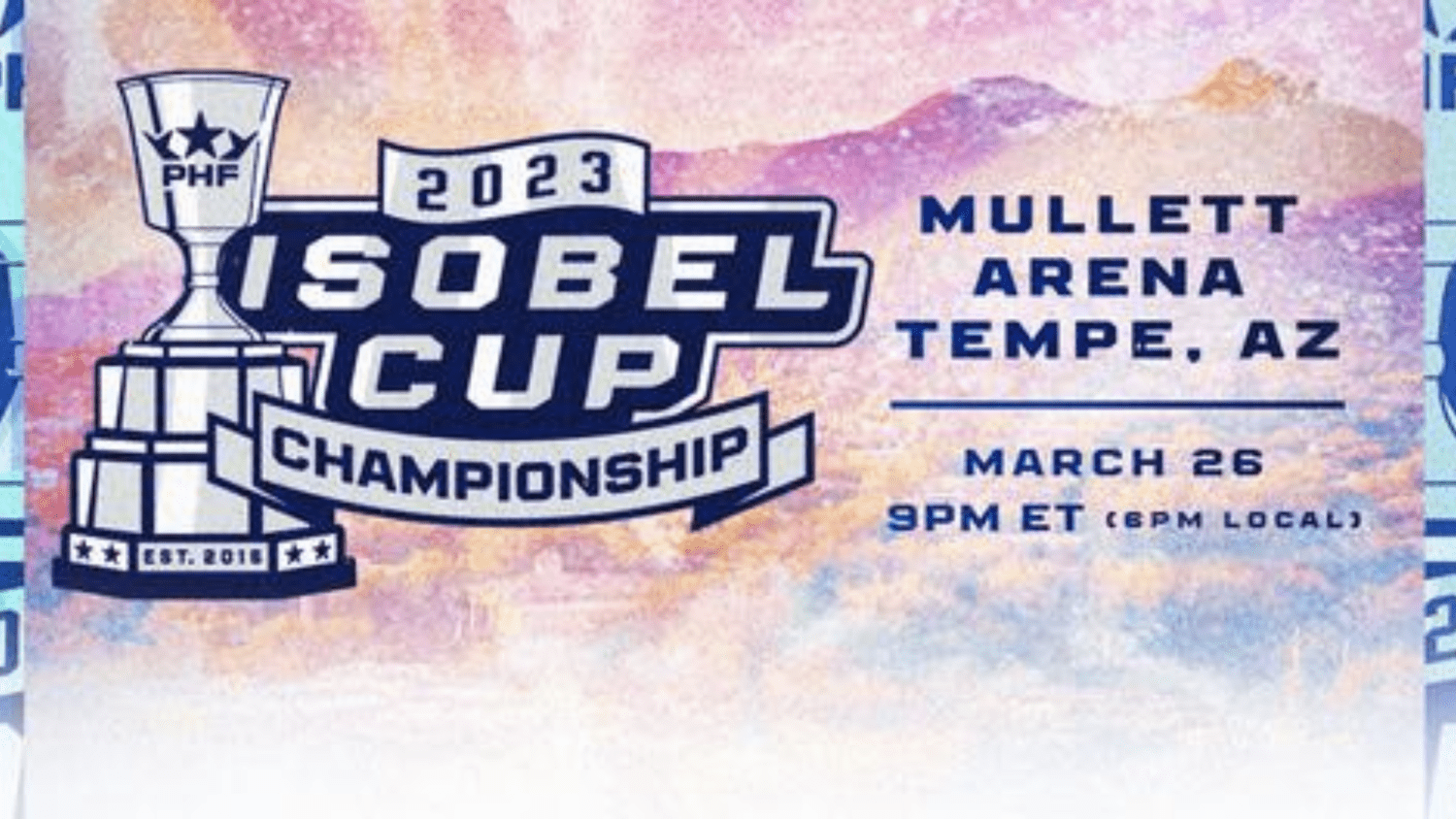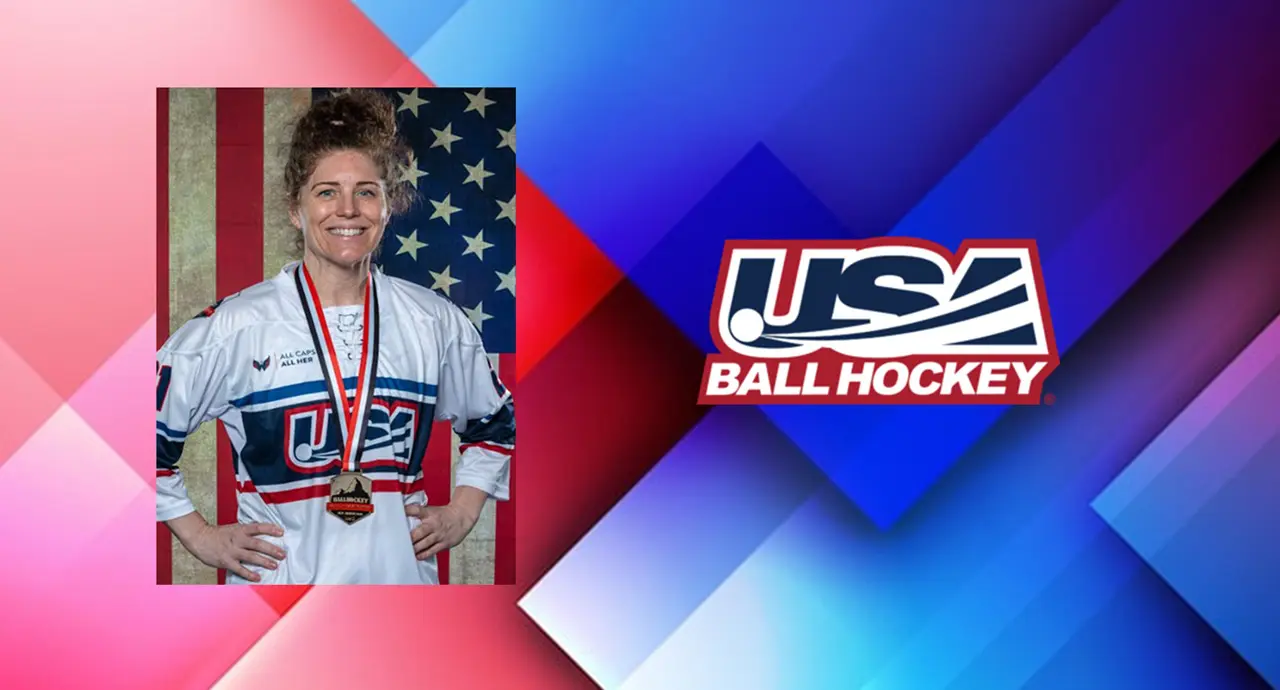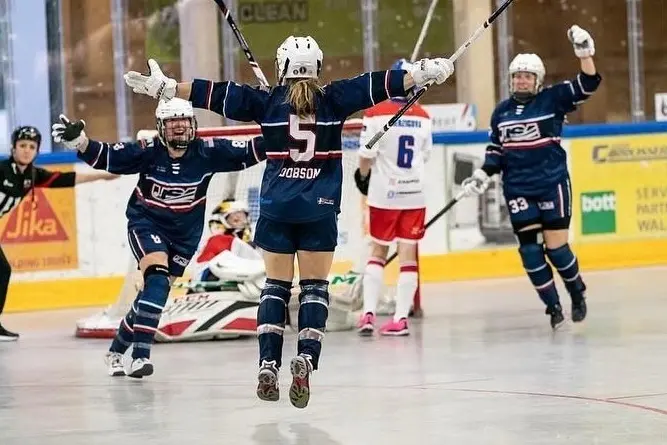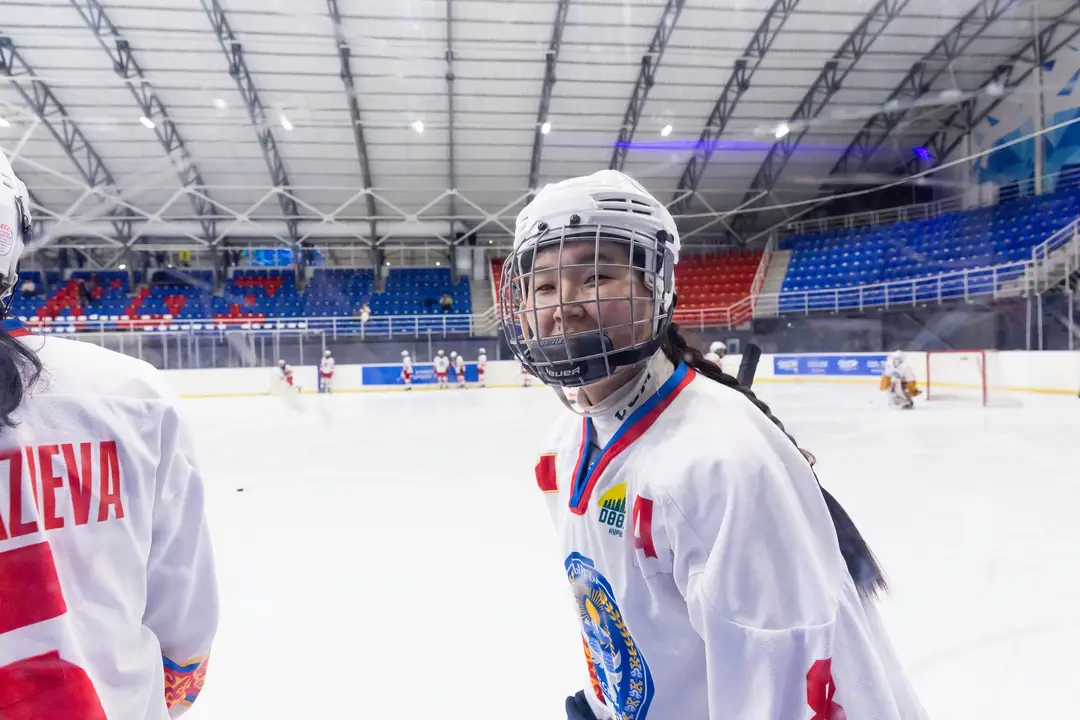Jauna Baribeau and Vanessa Gagnon
The Connecticut Whale of the NWHL, had two forwards this season from the Province of Quebec, Quebecers, or as the French-Canadians say, Québécoise. One was third year winger Juana Baribeau, the other was first year center Vanessa Gagnon. Being bilinguals, aggressive forwards, and youth soccer players aren’t the only similarities they share. Both also matriculated at Clarkson University: Juana via LaFleche, and Vanessa via Dawson College.
Vanessa explained the Quebec Cégep system that these schools are part of: “Quebec’s education system provides for a step between high school and university called Cégep. Cégep is a French acronym that stands for Collège d’enseignement général et professionnel. The vast majority of Quebec students start Cégep at age 17. Depending on their educational objectives, some will then continue on to university while others will enter the workforce with strong practical skills and knowledge following three years of technical studies.”
And in the case of Juana and Vanessa, their objective was to continue both their hockey and education at Clarkson.
Juana skated for Clarkson from 2008-2012, and Vanessa from 2010-2014, playing there as teammates for two seasons. In their careers at Clarkson, Juana played in 150 games, scoring 62 goals and adding 56 assists for 118 points. As a freshman, Juana scored all four goals in a 4-2 win over Vermont, displaying as her coach said “a rocket of a shot”. Juana left her mark on Clarkson hockey, graduating as their third all-time leading scorer. And of all her goals, none was bigger than the goal still referred to at Clarkson as “The Shot”.
In Clarkson’s NCAA tournament tame against Minnesota, Juana unleashed a rising slap shot from the red line that went top shelf to send the game into overtime. She beat Noora Raty with the shot, a Bronze Medal winner in the 2010 and 2018 Olympics with Finland. When asked about that memory, Juana reminisced: “Yes, the shot is a pretty good memory for my time at Clarkson. That year was a big one for the program, making it to the NCAA for the first time, and they’ve just been on a role since I graduated!” True enough, as Clarkson has now won its third NCAA title in five years this past season.
The first of those women’s hockey Championships at Clarkson came in 2014, and the title was the first NCAA National Championship for any sport in Clarkson history. Right in the middle of it was Vanessa Gagnon. Vanessa, a noted defensive forward and face-off specialist, compiled an impressive scoring record as well. In 148 games, she amassed 33 goals, 36 assists and 69 career NCAA points. None of those points, or the game they were scored in, were bigger than in the Frozen Four Championship in 2014. When questioned about her favorite moment on or off the ice at Clarkson, Vanessa offered: “I have so many great memories from Clarkson – it is difficult to pick one. But of course, what comes to mind immediately, are the final minutes of the NCAA Championship game. Ending my career on such a high note was amazing. The celebration following the game with the fans… the community that was waiting for us at Cheel Arena when we came back to Clarkson the next day, it was so special.”
Before moving the subject to their early days in hockey, we asked Juana how she got her nickname “Juice”, and as it turns out, that happened at Clarkson too. Juana told us: “The nickname started in college. My first name isn’t easy to pronounce, so it first started with “Ju”, then came along the comment that I must have been on “juice” to be this muscular (which I have never, just to be clear! 😉 ) and the nickname “Juice” ended up sticking… just wishing the story was better! Haha!”
The early days of hockey in Quebec
Although both are from Quebec, it is a massive province with over a million and a half square kilometres, and they were not neighbors. Juana is from Amos, more than 600 kilometres northwest of Vanessa’s hometown near Montreal. When asked about her start in hockey Juana said “Growing up I was fortunate to have parents encouraging my siblings and I to try sports. I started with swimming, gymnastic and violin before finding my way into hockey. During the summer, I would play soccer. I think it is good for young athletes to try other sport. Each sport brings an additional set of skills and also helps you get your mind off of hockey during the summer. At least that is what I needed. Some kids can be playing all year long and they love it! Each kid is different in what they need!”
When asked the same question, Vanessa revealed: “I started playing when I was nine years old thanks to my dad. I’m pretty sure it only took a few strides before I fell in love with the sport. My dad was always my coach growing up – and it is actually because of him and other parents that believed girls could play hockey that we now have elite programs in Quebec with all girls teams. I’ve only had to play with the boys one year. The remainder of my career, I was lucky enough to always be playing on elite girls teams.”
Vanessa added this about some other sports she was involved in and why that is important, “I tried/learned to play various sports when I was a kid – soccer, baseball, golf, flag football, tennis… but ended up dedicating most of my time in my teenage years to hockey. Today, besides hockey in the winter, I enjoy playing golf in the summer when times allow for it. I think it is super beneficial for the development of an athlete to play various sports growing up – and would encourage all parents to consider enrolling their kids in more than one sport as they are developing their abilities at a younger age. For example, soccer will develop your footwork, tennis your hand eye coordination, which are important skills to have in hockey.”
Playing in the NWHL
Juana has played in 45 professional games in the NWHL, all for the Connecticut Whale, since joining the team for the 2016-2017 season. One thing that Juana did not have available during her years at Clarkson, or upon graduating, was a career in professional hockey, as no pro leagues existed for women at that time. Juana offered her views on the dawning of the NWHL saying: “With the Whale, the whole experience is amazing. When I graduated from college, I never thought I’d be playing again in a highly competitive league, but here we are. The NWHL was created and gives players the platform to keep competing and play the sport they love and have always known.”
Juana also serves on the Board of Directors of The National Women’s Hockey League Players’ Association with fellow Whale teammate Keira Goin. The NWHLPA is headed by a former Whale, Executive Director Anya Battaglino.
Upon graduating two years after Juana, Vanessa still had no NWHL to consider in her post-collegiate plans. She explained, “After college, I was faced with a difficult decision: go back to my native land and play professional hockey with les Canadiennes de Montreal in the CWHL or accept an attractive job offer from a Fortune 500 company, headquartered in Ohio. It was extremely difficult to decide, as I was still on a high from my senior year in college, and just loved the sport so much. However, I decided to be realistic and rational – it was time for me to start building my pedigree in the business world and support myself financially.”
Vanessa continued, “The following summer, the NWHL league was announced, and I realized there would be a team based in Buffalo. The first PAID North American professional women’s hockey league? I just couldn’t pass on the opportunity to at least try out – or I thought I might regret it one day. I wanted to be a part of this historical year. I didn’t have much expectations – I just showed up in Buffalo and tried out. Next thing I know I had a contract from the Beauts in hand. This was exciting. However, due to complicated legal stuff related to my visa and my Canadian citizenship (I will spare you the details), I had to decline the offer.”
But when the Whale called this season, as they sought some reinforcements for their playoff push, things worked out, but only to a point. Vanessa explained, “This time around, the legal “stuff” was all squared out, so I actually had the green light. Since there were only a few games left in the season, I arranged my work schedule accordingly and decided to embrace the opportunity – and I am very happy I did so even if it didn’t end as planned.”
That was because, after coming in hot and flying all over the ice for the first couple of games, the season-ending injury came in a collision with a teammate. By then, it certainly did seem like there was a scoring opportunity every time she had the puck on her stick. Vanessa modestly allowed that “I was finally starting to feel like myself again on the ice just before I got injured.”
With a first round loss to their arch rival, the Metropolitan Riveters, the season did not end the way the Whale or our two Québécois from Clarkson wanted. But c’est la vie! There is the off-season to recover, and regroup, and perhaps if the two former collegiate teammates can hit the ice together from jump street, next season may well end with our Québécoise Juana “Juice” Baribeau and Vanessa Gagnon sipping champagne with the rest of the Whale from the Isobel Cup next March!
Photos courtesy of Clarkson Athletics
[adrotate group=”1″]
Related Articles
Categories
Recent Posts
[adrotate group=”2″]

